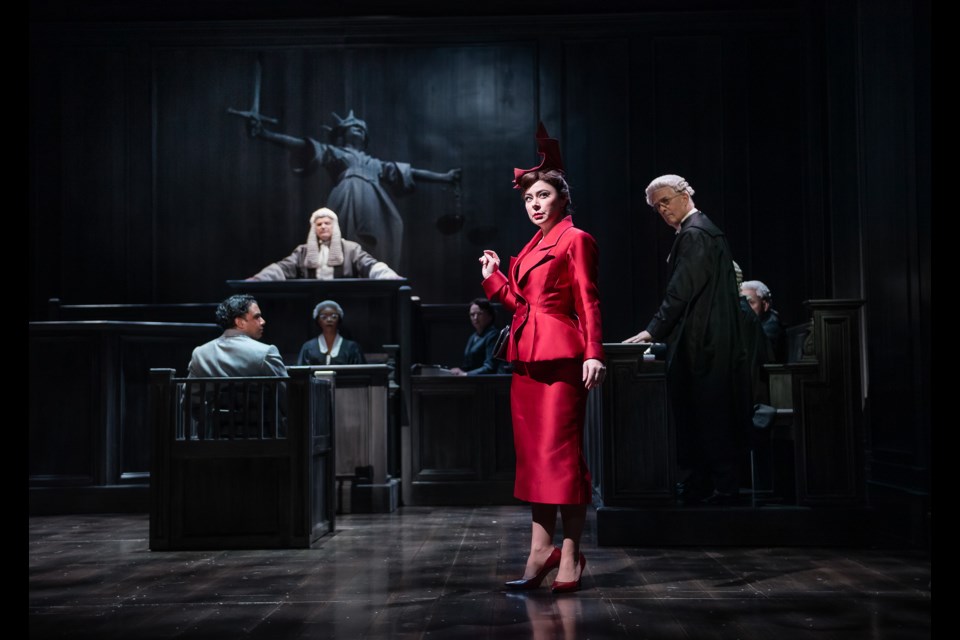The elements of courtroom and theatre blend together in Shaw Festival’s debut production of Agatha Christie’s Witness for the Prosecution, now at Royal George Theatre in Niagara-on-the-Lake.
The curtain opens as an earnest Leonard Vole affirms his innocence to his new lawyer, yet the next day he is on trial for the murder of his new friend, a wealthy widow who, in her will, has named Vole as the sole recipient of her estate.
The prosecution shockingly delivers Vole’s wife as their star witness, a cool and calculated woman and not at all what the lawyers for the accused expect from a “foreigner.”
In true Agatha Christie ‘whodunit' style, the remainder of the play and trial, takes twists and turns while tackling themes such as blind justice (or rather, justice as a woman who is blindfolded), love, and betrayal.
The image of Vole pushing his own prisoner’s box onto the stage brings to mind the undertaking of Sisyphus, a trickster whose punishment forced him to roll a boulder uphill for eternity.
As Vole struggles against themes of justice and betrayal, other characters show their stereotypes and prejudices of people who do not fit the mold of those who were “known, who mattered, and who could be trusted,” said Michelle M. Kazmer, scholar and author of the essay included in Shaw’s program.
Witness was first published in 1925 as a short story called Traitor Hands before Christie adapted it for the stage in 1953. While this is the first time for Witness to appear on Shaw’s stage, the theatre has produced five other Christie plays.
Alistair Newton, in his first season at Shaw, directed Witness as if the audience were watching a black and white film, putting into the minds of audience members other memorable courtroom theatre such as Twelve Angry Men and Two Kill a Mockingbird.
For Witness, the set of both the lawyer’s office and the courtroom is a milk-washed grey and the only colour comes from a strikingly dressed Romaine Vole, played cooly and seductively, if the two descriptors can live at the same time, by Marla McLean, now in her 18th season at Shaw.
The three-hour play (with two intermissions) goes by quickly and the audience, as jury members, must remain sharp to keep up with the rapid leading questions by the attorneys. The role of Sir Wilfred Robarts, QC, is played by Patrick Galligan, who, while as a young man awaiting the results of the law school admissions test at the University of Toronto, appeared in Chekhov’s Three Sisters, an act that determined his career as an actor.
It would be remiss not to mention the acting chops of Fiona Byrne as Greta (and court stenographer), secretary to Robarts. She, and many of the actors in this production, play their role as if their character knows more than they say.
Witness for the Prosecution is on stage at the Royal George Theatre until October 13. For tickets visit https://www.shawfest.com/whats-on-tickets/
